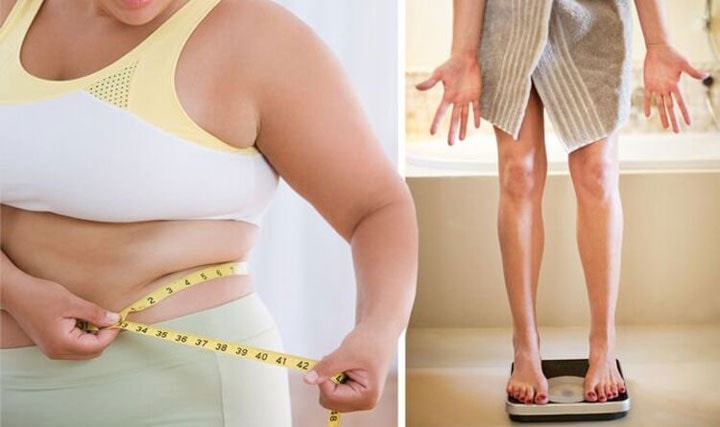How long does it take to lose weight?
Factors such as age, gender and starting point can affect how long it takes you to lose weight. Experts recommend losing 0.5-1kg per week to maintain a safe and effective weight loss regimen.
Weight loss occurs when you consistently consume fewer calories than you burn each day. This is called a calorie deficit.
A calorie deficit is usually achieved through exercise and a balanced diet. However, other factors can affect how quickly you burn energy and therefore lose weight.
How much weight should you aim to lose?
Many people claim to have a secret that will help you lose up to 10 pounds in a week. But this kind of rapid weight loss is not safe, effective, or sustainable.
Accordingly, you should aim to lose 5% to 10% of your body weight in the first 6 months of your weight loss journey. The US Centers for Disease Control and Prevention (CDC) recommends losing 0.5 to 1 kg per week.
Maintaining a calorie deficit is important for weight loss, but it's also important to set realistic calorie goals. On average, reducing your calorie intake by 500 calories a day is enough to help you lose about 0.5 kg per week.

The scientific method of losing weight is to lose weight slowly so that the body can adapt. Illustration: Getty
According toHealthline, consider talking to a healthcare professional if you're unsure about your weight loss goals and how many calories you should consume to reach them. They can help you create a sustainable plan.
How does weight loss work?
Any food or drink you consume that contains calories counts toward your total calorie intake. However, the number of calories you burn each day, known as your total daily energy expenditure, is a little more complicated.
Energy expenditure consists of three main components:
- Basal metabolic rate (BMR): This is the amount of calories your body burns when performing basic bodily functions, such as breathing and pumping blood. BMR is also known as resting energy expenditure (REE).
- Thermic effect of food (TEF): This refers to the amount of calories used to digest, absorb and metabolize food.
- Non-resting energy expenditure (NREE): This is the amount of calories used during physical activity.
NREE is divided into exercise activity thermogenesis (EAT) and non-exercise activity thermogenesis (NEAT), everyday movements outside of formal training such as walking and yard work.
Factors affecting weight loss
Several factors affect how quickly you lose weight. Many of these factors are beyond your control.
Stages of the weight loss journey
Weight loss occurs in phases. You will likely lose more weight in the first few weeks of your journey as your body adjusts to the calorie deficit and increased exercise. However, after a few months, you may reach a weight loss plateau.
Sex
Some studies show that men and women may burn calories at different rates. For example, a 2023 study found that men may burn more calories at rest than women.
An eight-week study including more than 2,000 participants on an 810-calorie diet also found that men lost 16% more weight than women.
Age
On average, people gain weight gradually until age 75, but after that, body weight may begin to decrease. Older adults tend to gain fat mass, while losing bone density and muscle mass.
Initial weight
Your starting body mass and composition can influence how quickly you can expect to lose weight.
Calorie deficit
The size of your calorie deficit can affect how quickly you lose weight. For example, eating 500 fewer calories per day for 8 weeks may help you lose more weight than eating 200 fewer calories per day.
However, be sure not to go too low on calories. Doing so can increase your risk of nutrient deficiencies and loss of muscle mass instead of fat mass.
Other factors
Several other factors can also affect the rate of weight loss, such as:
- Genetics.
- Not getting enough sleep can increase hunger, affect hormones, and cause changes in eating behavior.
- Certain medications, such as those used to treat depression, high blood pressure, epilepsy, diabetes, and allergies.
- Certain health conditions, such as chronic stress, depression, hypothyroidism, and Cushing's syndrome.
- Family history of obesity or overweight.
Which diet is best for weight loss?
There are countless weight loss diets out there, each promising great results. But it's important to note that no single diet is the best for weight loss.
A 2020 review of 121 studies looked at the weight loss effects of 14 popular diets with varying macronutrient ratios. Researchers found that all diets caused weight loss and there were no significant long-term differences.
The most important thing is to stick to a controllable calorie deficit and eat a balanced diet, which includes:
- Prioritize fruits, vegetables, lean proteins, low-fat dairy products, and whole grains.
- Limit alcohol, sodium, added sugars, cholesterol, saturated fat, and trans fat.
Remember, don't suddenly reduce the amount of calories you eat each day. Staying on a very low-calorie diet for long periods of time is difficult and can eventually lead to eating more calories and gaining the weight back.
Consider cutting 500 to 750 calories a day for a short period of time, then readjust your calorie intake goals later. For best results, combine a balanced diet with regular exercise and adequate sleep.






